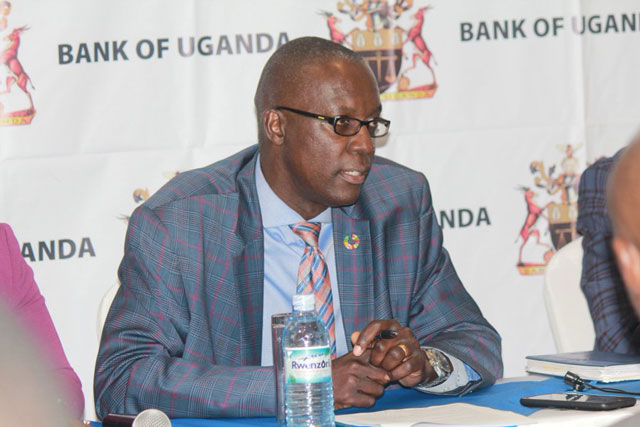
Kampala, Uganda | THE INDEPENDENT | Uganda’s banking industry, security agencies and the judiciary have teamed up to find solutions to the rising financial fraud that has increasingly hit the country in recent times.
The crime has been abated by the digital revolution with fraudsters taking advantage of new technologies to steal money from the financial institutions.
The Uganda Bankers Association says the decision to rally different sectors is because of the constantly evolving face of fraud, and the complexity with which incidents come, cutting across the different areas.
At their first Financial Fraud Forum held on Thursday, one of the biggest challenge facing the fight against financial crime as cited in the different views was what they say is a weak legal regime which provides for very light penalties to culprits.
UBA Executive Director, Wilbrod Owor urged the banks to maintain their work schedule throughout weekends and public holidays, saying that most crimes are executed on such days were vital departments are closed.
He also suggested that the laws should be amended to make fraud as costly to the perpetrators as possible.
On the common kinds of fraud, Owor said there are 18 known forms of fraud, and that these have been categorized into three.
According to him, cyber, electronic or digital fraud accounts for 31.9 percent of the crimes, while loan-related fraud constitutes 25.7 percent.
These include forging loan request letters, over valuation of collateral and impersonation when applying for a loan.
The other category is impersonation, identity theft, forgery and cash suppression, which accounts for 42.4 percent.
Owor also urged account holders, of both bank and mobile money amounts, to be more vigilant regarding their personal details, adding that many fraudsters target illiterate and poor people to surrender their bio data, which is then used to steal money.
All these, according to a survey done by the association at the end of 2022 on the cases that were reported, amounted to 43.6 billion Shillings.
Owor said that as the laws are strengthened, the financial institutions can apply blacklisting and exposure as a measure against fraud, targeting both fraudsters and staff.
The idea of the financial fraud forum was mooted by Stanbic Bank, which emphasized that there is need for collaboration between the financial institution, the investigating agencies, the prosecutors and regulators, among others.
The Chief Executive Officer Stanbic Bank Anne Juuko also said the public must get as much information as possible because they are the first line of defense against fraud.
Internal fraud or fraud aided by the staff of an organisation has also been suspected for long, while some have been prosecuted or dismissed for involvement in illegal practices.
The Chairman Board of Directors at Stanbic, Damoni Kitabire challenged bank managers to mind the work of the people they employ but also continue pressing on with the digital revolution to stay ahead of the fraudsters.
Currently, the laws that are in place do not specifically address financial fraud and hence the weak penalties according to the bankers.
While recently parliament passed the anti-money laundering laws, they these also have gaps when it comes to financial fraud at financial institutions.
Commissioner of Police Yusuf Ssewanyana, the Deputy Director Information Communication Technology says they use existing laws like the Computer Misuse Act and the Data Protection Act to prosecute cases.
He however, said that more capacity is being built in the force so that they are more capable to handle new and emerging challenges related to cybercrime.
Pius Perry Biribonwoha, the Deputy Solicitor General called for the transformation of social culture among the public but also the banking staff to view and consider fraud as an undesirable crime.
This, according to him should help in exposing suspects and any attempts to commit the offense as well as enable blacklisting.
*****
URN
 The Independent Uganda: You get the Truth we Pay the Price
The Independent Uganda: You get the Truth we Pay the Price



